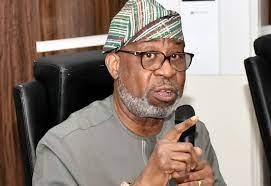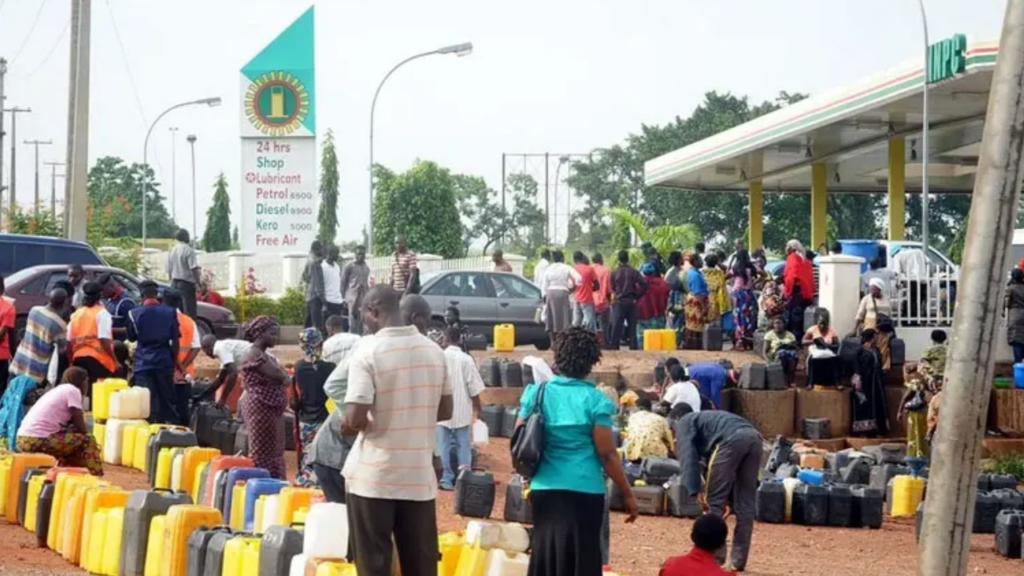Solid Minerals
Slowdown in Carbon Emissions Worldwide, but Coal Burning Continues to Grow

NEW YORK – Scientists compiling the numbers said it was unclear whether the slowdown in the growth of emissions might represent the beginnings of a permanent shift. One-time factors in China, including the opening of several large new dams to supply electricity, played a substantial role, as did slower economic growth there.
The new figures were released late Monday by the Global Carbon Project, which tracks emissions. They showed that carbon dioxide emissions from the burning of fossil fuels and the production of cement rose by 2.1 percent in 2012, compared with 2011, and they are projected to rise by a similar amount in 2013. Since 2000, growth in such emissions had been running above 3 percent a year, on average.
Scientists said that more aggressive climate policies in some countries may have played some role in the slowdown. Emissions are falling in the United States, thanks to factors that include an abundance of natural gas, which is displacing coal in the generation of power, and to tougher mileage standards for new cars. They are also falling in Europe, where a weak economy has reduced demand for power.
 Yet on a global scale, the continuing expansion of coal, the dirtiest form of fossil energy and the one associated with the highest emissions of greenhouse gases, is far outstripping the growth of renewables and other low-carbon sources of power.
Yet on a global scale, the continuing expansion of coal, the dirtiest form of fossil energy and the one associated with the highest emissions of greenhouse gases, is far outstripping the growth of renewables and other low-carbon sources of power.
“Coal is king, still,” said Glen P. Peters, a researcher at the Center for International Climate and Environmental Research in Oslo and a leader of the group that produced the new analysis.
The countries of the world have set a goal of limiting global warming to 3.6 degrees Fahrenheit, or 2 degrees Celsius, above the preindustrial level. But that will require emissions to peak and begin to decline toward a low level by 2050.
“At the moment, it’s very hard to see any evidence that we’re going to peak any time soon,” Dr. Peters said.
In Warsaw this week, negotiations are underway toward a new global climate treaty intended to limit emissions, but it is not even supposed to take effect until 2020, and no deal is assured.
In a speech on Monday in Warsaw, the United Nations’ top officer on climate change warned coal industry executives that much of the world’s coal will need to be left in the ground if international climate goals are to be met.
Christiana Figueres, executive secretary of the United Nations Framework Convention on Climate Change, told industry leaders at the World Coal Summit, which the Polish government called somewhat incongruously to run at the same time as the 19th meeting of the United Nations climate conference, that they were putting the global climate and their shareholders at risk by failing to support the search for alternative methods of producing energy. Poland relies on coal for nearly 90 percent of its electricity, and the government has upset the European mainstream by spurning efforts to slow the use of the fuel.
“Let me be clear from the outset that my joining you today is neither a tacit approval of coal use, nor is it a call for the immediate disappearance of coal,” Ms. Figueres said. “But I am here to say that coal must change rapidly and dramatically for everyone’s sake.”
She cited a “business continuation risk” for the coal industry if it does not play a larger role in finding ways to limit emissions.
One option would be to capture emissions of carbon dioxide from coal-burning power plants and inject them into deep underground formations, but development of that technology, known as carbon capture and storage, has received little support from the industry or from governments.
Godfrey G. Gomwe, chairman of the World Coal Association’s energy and climate committee, responded in a speech that, with “1.3 billion people in the world who live without access to electricity,” the questions of climate change and poverty reduction could not be separated.
“A life lived without access to modern energy is a life lived in poverty,” said Mr. Gomwe, who is also chief executive of the mining company Anglo American’s thermal coal business. “As much as some may wish it, coal is not going away.”
Todd Stern, the United States envoy on climate change, said at a news conference in Warsaw that the world’s reliance on coal is “not going to change overnight.” But, “high efficiency coal is certainly better than low efficiency coal,” he added, noting that carbon capture and storage technology was “the most important hope” for coal’s future.
Business
Nigeria set to boost Naira value and foreign reserve with local gold production, as Tinubu receives gold bar
IN a significant move to strengthen Nigeria’s economy, President Bola Tinubu received a symbolic gold bar on Sunday from the Minister of Solid Minerals Development, Dele Alake.
This gesture marks the commencement of the National Gold Purchase Program (NGPP), aimed at boosting the naira’s value and enhancing the country’s foreign reserves.
Minister Alake expressed gratitude to President Tinubu for his support of reforms in the solid minerals sector.
He highlighted that the NGPP, which involves sourcing gold from artisanal and small-scale miners and refining it to meet the London Bullion Market Association’s Good Delivery Standard, will substantially contribute to Nigeria’s economic stability.
Alake stated “This initiative will significantly increase our foreign reserves and strengthen the naira. The refined gold will be supplied to the Central Bank of Nigeria, marking a crucial step in our economic strategy.”
The presentation also underscored the first commercial transaction under the NGPP, establishing a centralized gold purchasing system that integrates small-scale miners, cooperatives, and production units across the nation.
This program is expected to provide a structured market for gold, fostering economic growth and stability.
He said, “The successful completion of the first commercial transaction clearly demonstrates the National Gold Purchase Program’s effectiveness. It has increased the nation’s foreign reserves assets and shown that using the Nigerian Naira to purchase a liquid asset traded in United States Dollars, such as gold, is a viable strategy. This transaction has also underscored the potential of the National Gold Purchase Program to enhance fiscal and monetary stability.”
Alake added that the initial commercial transaction under the program resulted in a +US$5 million boost in Nigeria’s foreign reserve assets.
The transaction involved refining over 70 kilograms of gold to meet the London Bullion Market quality standard and aggregating locally mined gold, thereby infusing approximately NGN6 billion into the rural economy.
President Tinubu expressed appreciation for the Ministry’s accomplishment in advancing the government’s goal of economic diversification by acknowledging and displaying the symbolic gold bar
Solid Minerals
FG Fingers Foreigners Sponsoring Banditry For Illegal Mining

The Nigerian Government has threatened to come down heavily on foreigners sponsoring bandictory as a way of sustaining illegal mining activities in parts of the country.
The warning was handed down in Abuja by Minister, Solid Minerals Development, Dr Oladele Alake, while receiving a delegation of the Nigeria-China Chamber of Mines led by its National President, Dr. Olugbenga Ajala.
Details of these were contained in a statement released by Head, Press & PR, Ministry of Solid Minerals Development, Alaba Balogun over the weekend.
The statement cited, Dr Alake, thus, “The government will come down firmly on these unscrupulous foreign operators sponsoring banditry to perpetrate illegal mining: let me use this medium to appeal through you to tell those sponsors to desist or face the full wrath of the law.”
According to Dr Alake, the Ministry is committed to establishing a multi-agency task force that will end the activities of illegal miners and their collaborators.
The Minster made it clear that the FG had given illegal miners a 30-day-ultimatum to legitimise their businesses, quit Nigeria or incur the wrath of the law.
According to him, this will help “to streamline and structure the Small-Scale Artisanal Miners for maximum yield to the Federal Government.”
The delegation paid a courtesy call on the Minsiter at the Ministry’s headquarters in Abuja.
Energy
Fuel Scarcity: Govt Yet to Increase Pump Prices – NMDPRA

By Edozie Obasi-Eze
Amidst heightening uncertainties in the domestic petroleum products market characterised by scarcity and irregular pricing, the Nigerian Midstream and Downstream Petroleum Regulatory Authority (NMDPRA) has declared that there’s no intention to review pump prices upwards.
This was contained in an advisory issued by General Manager, Corporate Communications, NMDPRA, Kimchi Apollo.
He stated that the Nigerian National Petroleum Corporation Limited (NNPCL) had imported PMS with current stock levels sufficient for 34 days.
In an attempt to address panic buying and speculations which have seen price of Premium Motor Spirit (PMS) oscillate between N180-N250 in the Lagos area, Apollo assured that there was enough quantity of the product in the country already.
He said, “Consequently, marketers and the general public are advised to avoid panic buying, diversion of products and hoarding.
“In keeping with the Authority’s responsibilities as outlined in the Petroleum Industry Act (PIA), the Authority assures the public that it would continue to monitor the supply and distribution of petroleum products nationwide, especially during this holiday season.”













